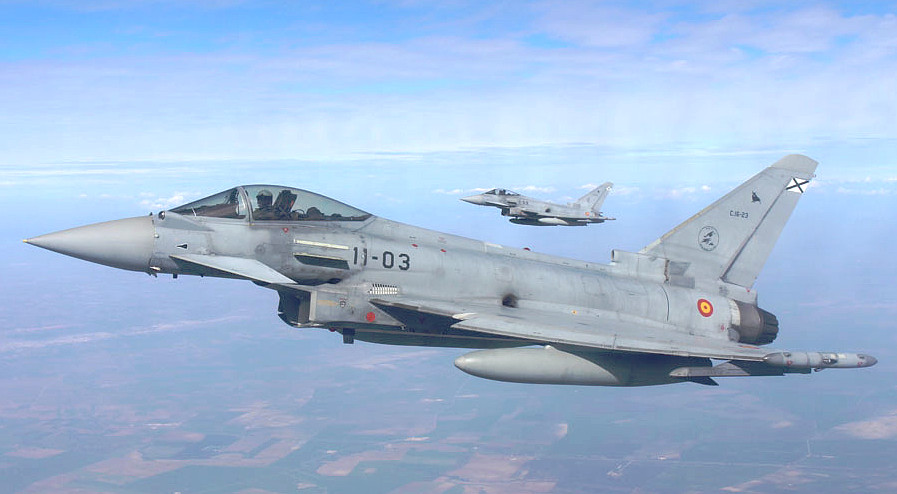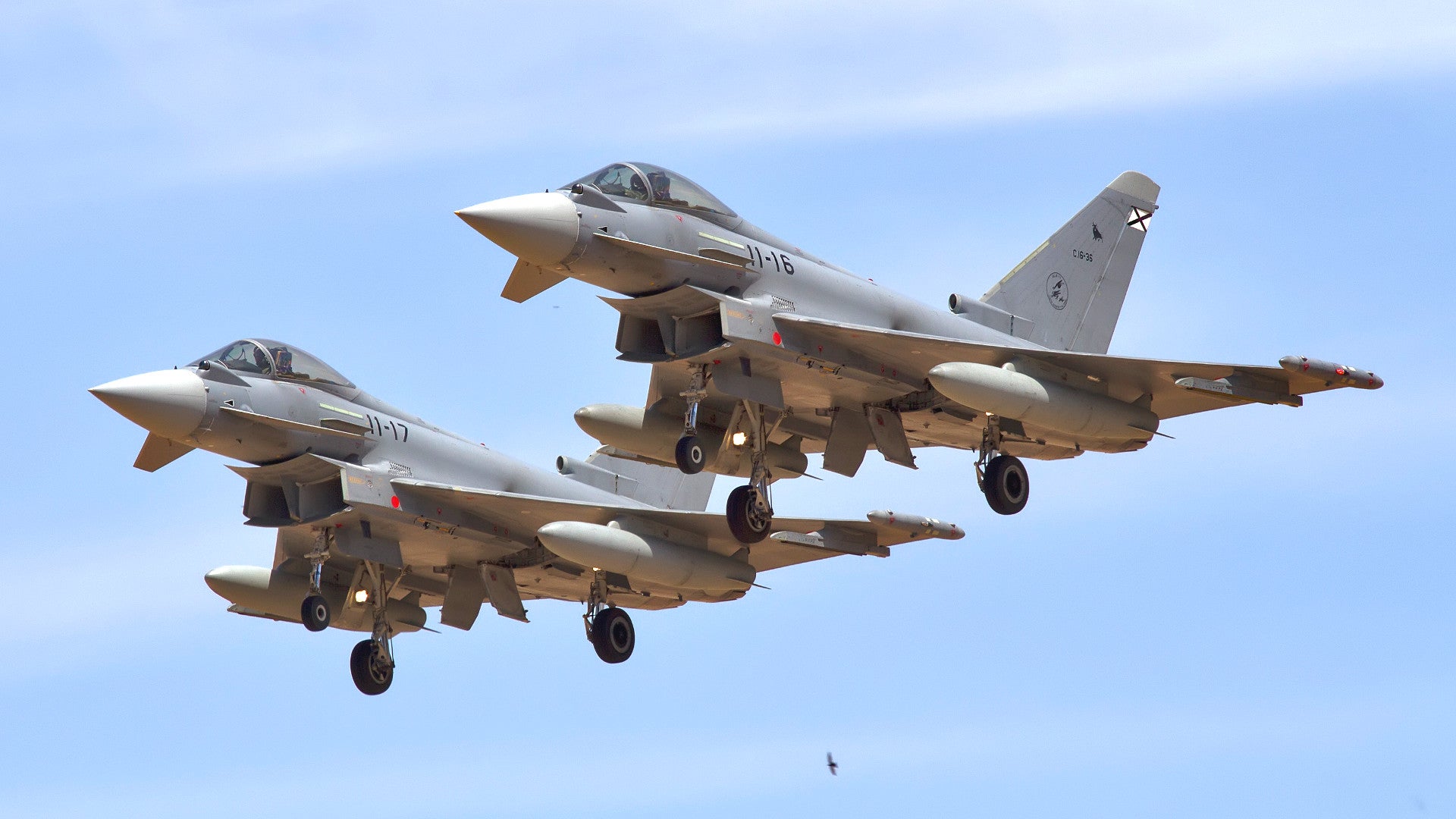A Spanish Air Force Eurofighter EF2000 has accidentally fired an AIM-120 Advanced Medium-Range Air-to-Air Missile, or AMRAAM, while on patrol over Estonia. A search is now underway for any remnants of the weapon and Estonian authorities have, understandably, already launched an investigation into what exactly happened.
The incident occurred on Aug. 7, 2018, at around 3:44 PM local time in the Pangodi area of Estonia’s Tartu County, which situated less than 50 miles west of the country’s border with Russia, according to local reports. In May 2018, Spain deployed six of its Eurofighters to the region as part of NATO’s Baltic Air Policing mission, where they joined Portuguese F-16AM and French Mirage 2000-5 fighter jets.
Estonian authorities say the last presumed position of the AIM-120 was around 25 miles north of the city of Tartu proper. After launching the missile, the Spanish EF2000, from that country’s Ala 11, or 11th Wing, based at Morón Air Base, returned to its forward operating location in Šiauliai, Lithuania.
The weapon has a self-destruct feature, but it is unclear if it exploded or crashed into the ground. Estonian Defense Forces subsequently went out to look for any signs of the weapon using helicopters, but so far, there is no indication that they have found anything.

The missile is more than 12 feet long and has a warhead with between 40 and 50 pounds of high explosive depending on the particular variant. As such, Estonian officials have urged anyone who does come across bits of the AMRAAM to stay away from it and alert the authorities.
So far there is no word on whether the launch was the result of a fault with the aircraft or pilot error. Neither would seem particularly likely to occur.
For the aircraft to inadvertently launch a weapon by itself, the appropriate electrical signals would need to get to the missile. The EF2000, or any other modern fighter jet, has multiple fail-safes in its design to prevent this from occurring accidentally.
Spanish Eurofighters have suffered a number of accidents dating back all the way back to 2002, when the crew of a two-seat variant ejected safely after suffering a dual engine flameout. Additional crashes occurred in 2010 and 2017, killing the pilots in both cases, but there have been no other reports of misfired weaponry.
The videos below show Spanish EF2000s performing the Baltic Air Policing mission in 2016.


If the mishap was the result of pilot error, it would have required a significant number of protocol failures. Launching an AIM-120 is a multi-step process that begins with having the aircraft’s master arm function turned on. The pilot would then have to at least select the missile from the available armament options and then trigger the launch.
The Baltic Air Policing mission is just that, an aerial police service meant to help the Baltic States of Estonia, Latvia, and Lithuania patrol their airspace against intrusions. But even if in times of war, the master arm function remains off until the pilot is ready to engage an enemy target. Even securing approval or independently firing on a hostile aircraft can involve carefully laid out procedures that are in accordance with strict rules of engagement.
Whatever the case turns out to be, it’s definitely embarrassing for Spain, which is among the NATO members that spend the least on defense. It’s also not a great look for the Alliance as a whole, which has been under increasing pressure, especially from the United States, to reinvigorate its military capabilities after years of increasing neglect
in many cases since the end of the Cold War.
We will be keeping an eye out for any new details about this accidental missile launch and will update this story if we learn anything new. In the meantime, if you’re in Estonia and happen to see a long, smoldering tubular object lying on the ground, you can call the authorities at +372 717 1900 or dial 112 for the country’s national emergency line.
Contact the author: jtrevithickpr@gmail.com
